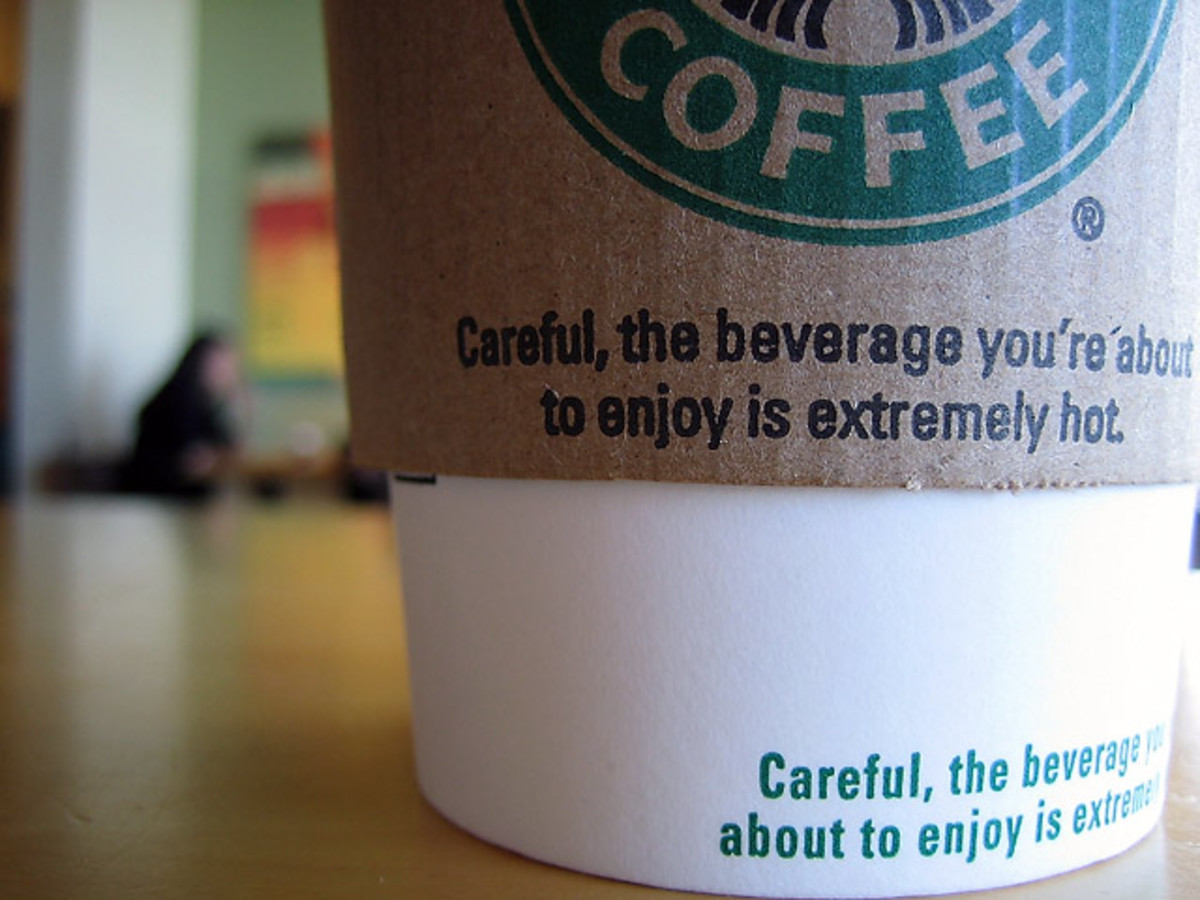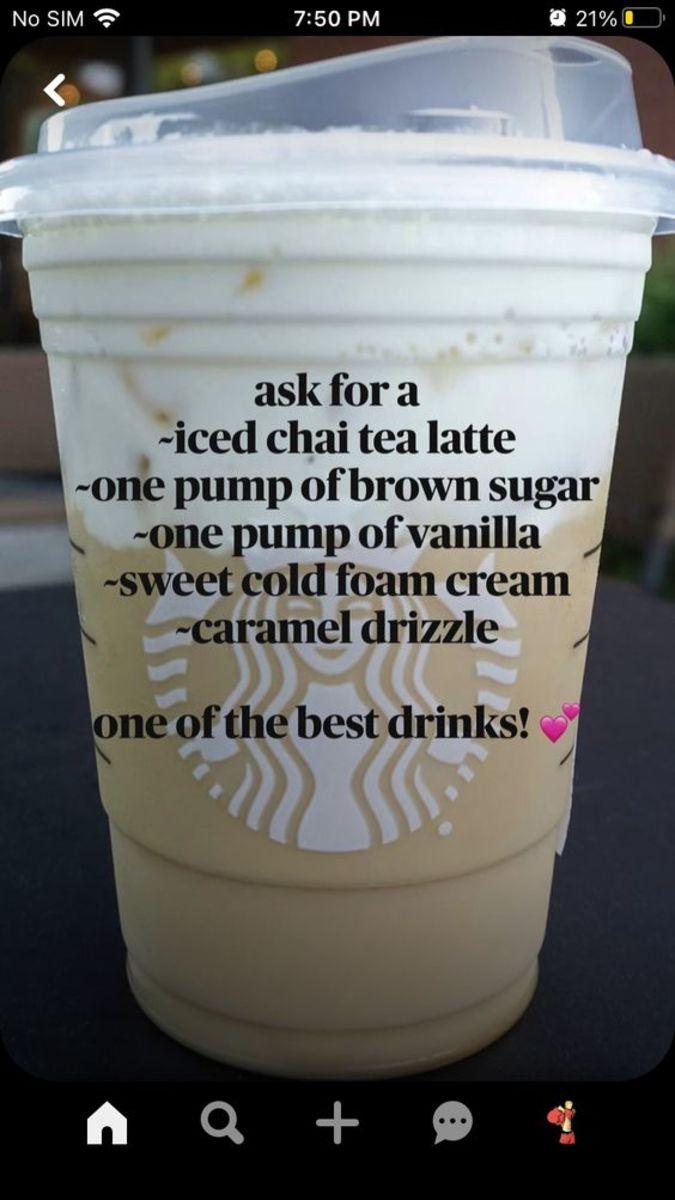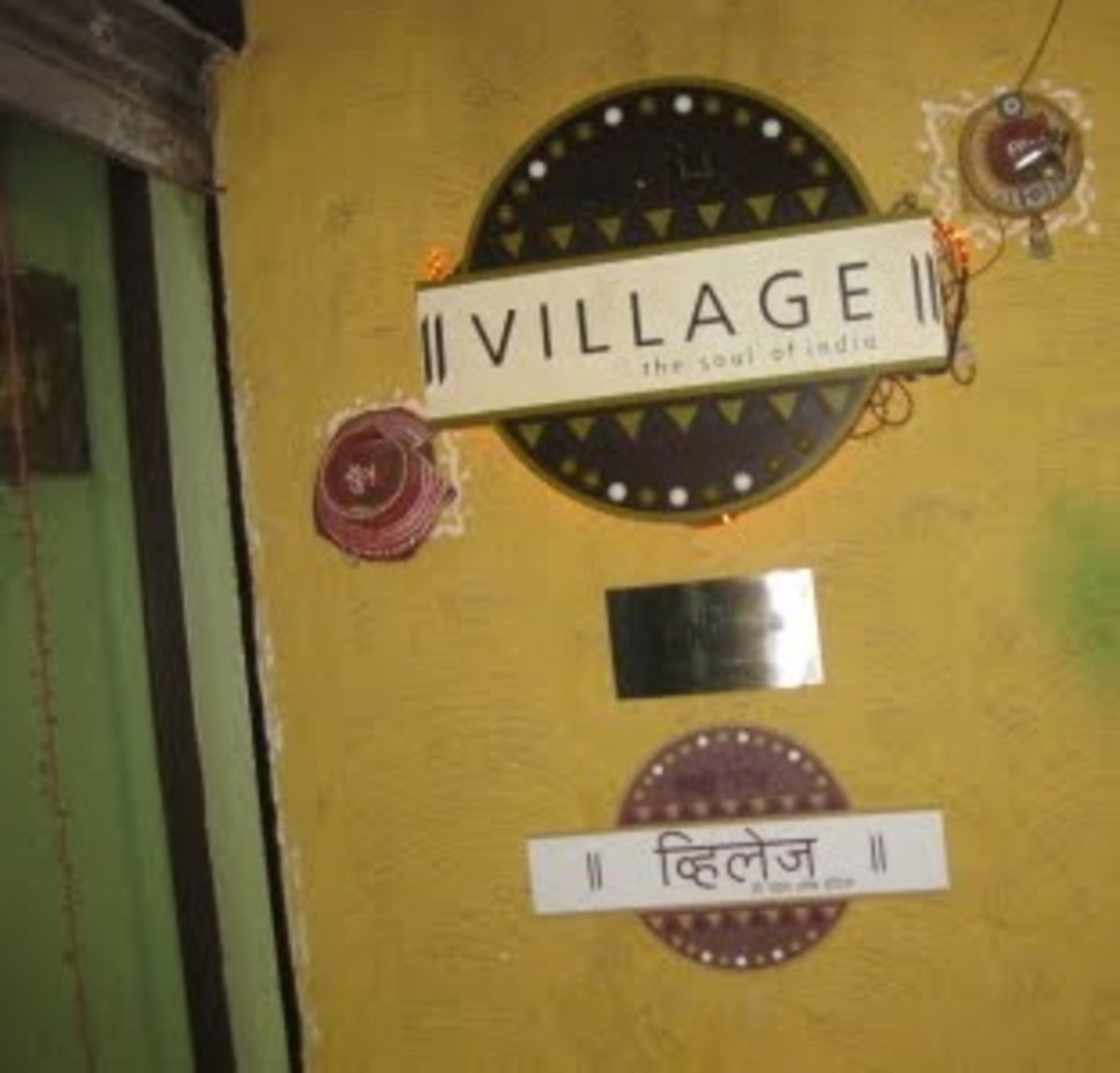Coffee Shop Controversy: Starbucks vs. Indie Shops
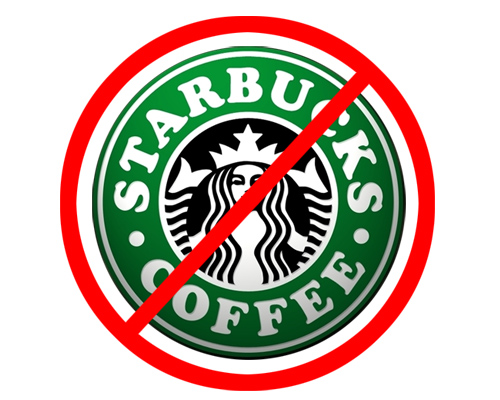
With increasing intensity I am being confronted with a dogmatic prejudice. Few things frustrate me more than ignorance purported as inconvertible truth, yet my workplace requires geniality and I lack the verbal finesse to indirectly bring to light the falsehood of another’s statement. And thus, I find my platform on HubPages.
As an employee of an independent coffee shop, I encounter a barrage of attacks on Starbucks from both coworkers and customers. “Your chai isn’t as sweet as the disgusting Starbucks chai, is it?” or “I don’t tip at Starbucks because the employees aren’t real baristas.” Once I even heard Starbucks partners described as untrained monkeys—a sentiment that has been repeated on many occasions. Recently, in response to one customer’s laments, my coworker said with a knowing expression, “Starbucks is a sad place.” This particularly caught me off guard.
I want only to inform, not to force my opinions on others. My information comes from experience alone, having worked at several independent coffee shops as well as Starbucks. I would like to address two important prejudices and potential explanations, though by no means excuses, for the closed-minded attitude that has turned a benign difference of preference into hatred.
"Starbucks is too lazy to train employees"
The best team I have worked with in my numerous customer service positions was at Starbucks. My coworkers cared more and offered better service than at my three other barista jobs. In preparation for my current position at an independent Boulder coffee shop, I was given comparably significant training in regard to making drinks, but my instruction stopped there. Employees are left to their own devices, ultimately either finding different ways to complete tasks or avoiding tasks altogether. Knowledge about the coffees and teas we sell is scattered, though most are adept at feigning opinions if necessary. I have heard Ethiopia Yrgacheffe described to a customer as heavy and simple, for example, and acidity confused with alkalinity. Our store’s walls are lined with shelves, filled to the ceiling with machinery we know little-to-nothing about. Surely my employers do not want their employees to evince our ignorance in the face of the onslaught of questions we receive from customers, but they do not care enough to offer any training so, what we know, we taught ourselves; it may or may not be correct.
At Starbucks, my training lasted for two full weeks; I spent each of my training shifts in the company of my manager so he could ensure that I received the most accurate information rather than misconstrued, hand-me-down recollections of other employees. I liken Starbucks to a well-oiled machine: every element has been fine-tuned to produce the most consistent and efficient product. Drinks don’t consist of a little bit of this and a somewhat larger proportion of that, they comprise exact and clearly stated quantities. The workflow itself is a “repeatable routine,” each element of a drink completed in a specific order that overlaps perfectly with the next drink. The espresso machine is streamlined to expedite the process and allow some of the barista’s attention to be paid to the customer at all times. He or she is expected to engage with the drink recipients, not just divert attention back to machinery upon setting a drink on the counter. Starbucks’ research has shown that people care most about consistency, speed and friendly service; they are willing to sacrifice the taste advantages of a manual espresso machine. Meanwhile, sanitation and hygiene are ensured with the help of timers that indicate how long the milk carafes have been on the counter and when the towels, which are always in sanitary liquid, need to be replaced. Iced teas are made each morning and brewed coffee is cycled regularly. Furthermore, Starbucks baristas are given a "Coffee Passport" and made to set aside time at work to brew, taste, and write about one coffee each week. At other coffee shops, time is seldom (if ever) set aside for baristas to actually taste the coffee they sell; as a consequence, some go the extra mile to learn about the coffees in their free time, others just make up information when asked.
I once heard my current manager say Starbucks is too lazy to train employees, when in fact, it is quite the opposite: most Starbucks partners are exceptionally well-trained, especially compared to independent coffee shops that can only bother to show employees how to operate an espresso machine. Employees of Starbucks are trained to give customers a consistent experience with great service, and most work hard to ensure that they succeed. Independent coffee shops train employees to make drinks that may vary significantly depending on the barista; customer service is often neglected completely and many employees just don’t care about their jobs, in part because their employers don’t seem to care about them.
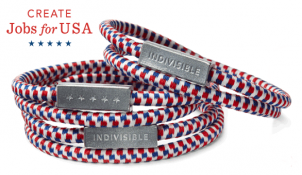
"Starbucks is a sad place"
I wish there were a reliable study comparing the happiness of Starbucks employees to those of other coffee shops. Perhaps the best indicator is Starbucks' low turnover rate relative to that of other coffee shops. My current coffee shop employers can’t even be bothered to offer direct deposit, my tips are taxed, and health insurance is virtually non-existent. If they wanted to convey to the employees that they don’t care about them, they have certainly succeeded.
How Starbucks shows it cares:
- Full health benefits for even part-time employees: despite pressure from shareholders to cut health care benefits during the recent financial crisis, which would save the company more than $300 million, Starbucks’ CEO, Howard Shultz, refused. Starbucks spends more money each year on health care for its employees than on coffee beans. The result? Employees feel cared for and appreciated.
- Low taxes on tips: taxes on tips assume that baristas make $0.50 per hour in tips; nothing above that is taxed. Depending on how busy one's store is, and how generous the customers are, most baristas probably receive $1 to $3 per hour in untaxed tips.
- Tuition assistance: $500-$1000 per year depending on how long the student has worked at Starbucks.
- Community-oriented: several times per year, employees and community members are rallied to participate in volunteer service, such as helping out at a festival or picking up trash. In 2011 Starbucks founded a coalition to provide funding for small businesses, thereby helping to fight unemployment. In addition to donating $5 million, they offer opportunities for their customers to join the cause with small donations. What I love most about this isn't that the corporation donated a fraction of its funds, but that it gave people an opportunity to contribute to their communities.
- Free pound of coffee or box of tea every week: my discount on coffee and tea at my current job is a meager 25%. I miss being able to bring home Casi Cielo or stock up on VIA, which I love in brownies.
- Free company stock after one year: allows employees to share in the success of the company, which they contributed to.
- 401(k): Starbucks matches employees’ contributions to their “Future Roast” 401(k) plans, adding 25 to 150 percent of the first 4 percent of pay.
Clover Coffee
Why people hate Starbucks
We love a bad guy and a huge conglomerate that has monopolized a people-oriented industry is easy to hate. The essence of the indie-hipster persona seems to be a dogmatic anti-establishment attitude. To these indie coffee addicts, Stabucks is a shining example of all they hate in the world. The prejudices against Starbucks are reminiscent of Europeans’ views on the United States: blind bitterness. The point is, mutual hatred for the bad guy actually brings people together and makes us feel good (at least for a moment until our conscience kicks in).
Several times a day I am faced with customers that unapologetically use Starbucks terminology. When a customer demands a “tall latte” and I ask if she means “this size” (holding up a 12-oz cup), I am usually met with an annoyed expression that seems to say, “Yes, obviously. Why are you bothering me with this?” To these customers, I would like to explain something: Caramel Macchiatos and Vanilla Bean Frappuchinos are not universal drink options; Small, Medium, and Large are not “quaint” names for drink sizes, they are standard. Today a customer who had ordered a Caramel Macchiato was exceptionally bothered with the drink he received: four shots of espresso and caramel syrup topped with a dollop of foam. Apparently he felt he was entitled to a Starbucks drink at a non-Starbucks coffee shop, for he clearly and adamantly considered the error to belong to his barista. This is in part my fault: he had received a Starbucks-style Caramel Macchiato there before, because I, a former Starbucks barista, had taken his order previously and, obviously without forethought, made him the drink he wanted. When I remade his drink today, he left angry that we had not made it for him to begin with, rather than appreciative of our willingness to—free of charge—make a drink that he did not order. It’s easy to see why employees of independent coffee shops feel bitter toward Starbucks.
Non-Starbucks baristas and patrons seem to profess the fundamental assertion that Starbucks is the worst thing in existence, as one coworker explicitly confirmed recently in the statement, “Nothing is worse than Starbucks.” The impression of Starbucks coffee as a whole I mostly agree with: the company masks comparably poor quality with very dark roasts, such that consumers taste the roast more than the origin and processing. The low quality of espresso is similarly masked by syrups. That said, there are exceptions: Starbucks “Reserve” stores carry some good single-origin varietals that are not available at other locations. Some of these stores even have Clover machines, which use vacuum technology to produce a cup with unparalleled flavor clarity.
Incidentally, Stumptown (a Portland-based coffee roaster with several shops) relinquished its Clovers when Starbucks bought the company because Stumptown’s owners were too proud to purchase parts or service from Starbucks. To me, Stumptown's juvenile decision proved that they care more about their own ego than the quality of the coffee drinks they serve and their customers' experience.
Final thoughts
On the subject of Starbucks versus Stumptown, one post voiced a sentiment that I believe many people would agree with: he or she would choose burnt coffee and a guaranteed smile over snooty demeanor and flowery foam any day. My current employers insist on training baristas to make high-quality drinks because they feel customers should get their money’s worth. Most customers do not pay $4 just for a drink; they also pay for an encounter that lifts them in some way.
Tell me, readers and fellow coffee/tea consumers: what do you pay for? A genial interaction? Caffeine? Taste? Setting? The whole experience?
Above all, I long for people to be kind and considerate. Blind hatred is never advantageous; for a moment, it may offer a pleasant feeling akin to the relief of scratching an itch, but to most people it conflicts with our conscience and adds to our dissatisfaction with life. Spread happiness instead. If you feel the need to have a strong antagonism toward something, let it be grounded in fact rather than prejudice.
Some readers may wonder why I chose to work at an independent coffee shop rather than Starbucks after returning to the coffee industry after a brief hiatus. Here are my reasons:
- As an ardent coffee and tea lover, Starbucks just doesn't satisfy me--unless I happen to be in the Pearl District in Portland, in which case I may venture over to the location at 10th and Couch, which has a Clover machine and a nice coffee selection. I sought employment at other coffee shops in part because I wanted to explore and share my love for coffee and tea. I'm disappointed to report that most patrons of my current coffee shop still consume coffee for the caffeine rather than the experience, and those that request tea just want Earl Grey.
- A large proportion of Starbucks customers seem to carry an air of entitlement uncommon in patrons of other coffee shops. Only at Starbucks can hoards of customers list off the particulars of paragraph-long drink orders with pride rather than shame. Only at Starbucks will customers return angrily if their versions of "extra hot" or "extra vanilla" are not strictly adhered to, or if a seven-pump toffee nut white mocha is too sweet. The impatience one encounters among Starbucks customers is also startling: how is it possible that all of these people are always in such a hurry, yet feel they have time to stop for coffee? I should confess, though, that my Starbucks employment experience was at an upscale outdoor mall frequented by skinny latte-drinking stay-at home-moms and Frappuchino-chugging teenagers with their parents' money.
- Some of Starbucks' policies seem to stifle my sense of self. Not only are you restricted in demeanor and attire, you are essentially made into a perfect cog in a machine.

